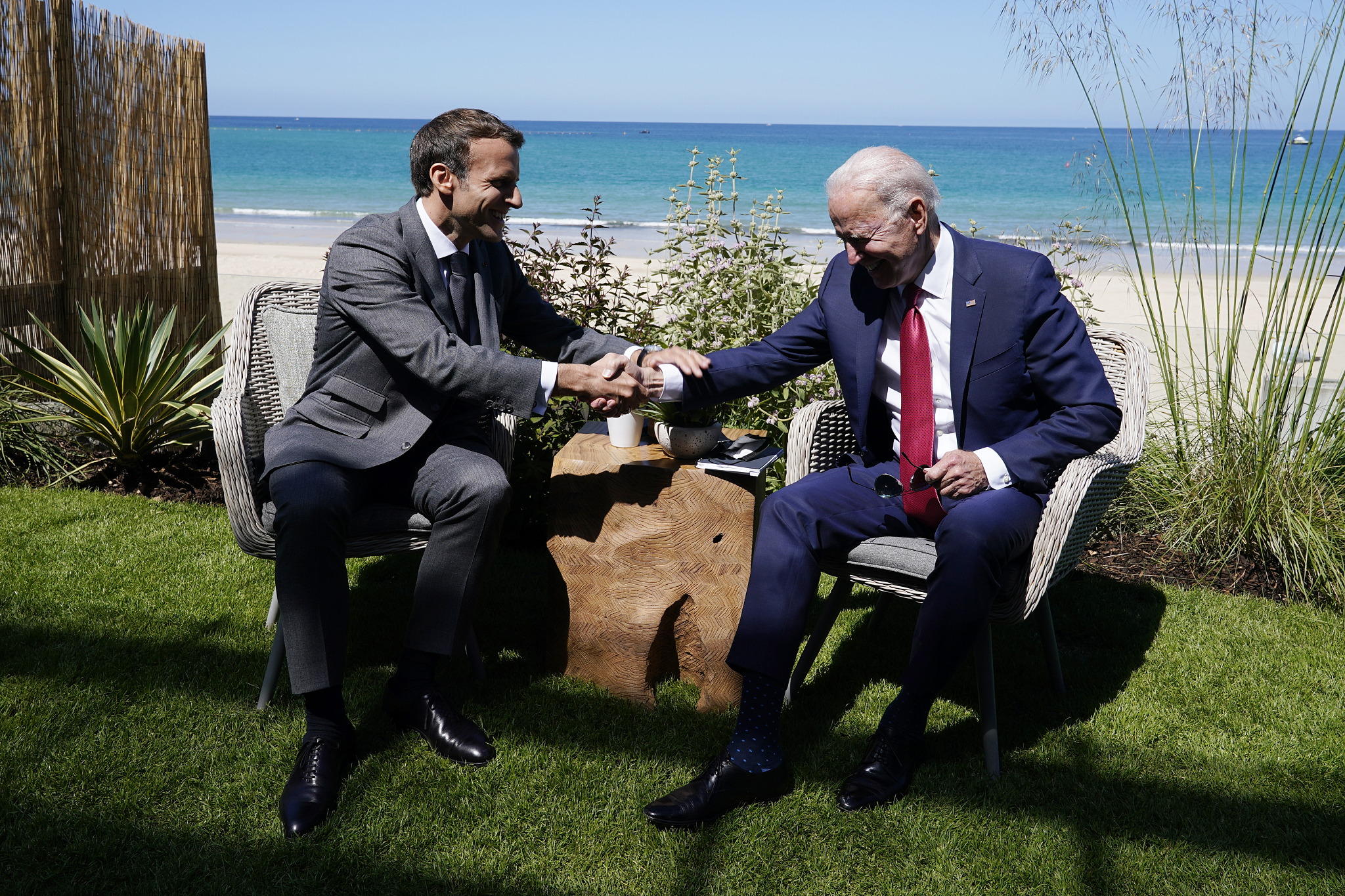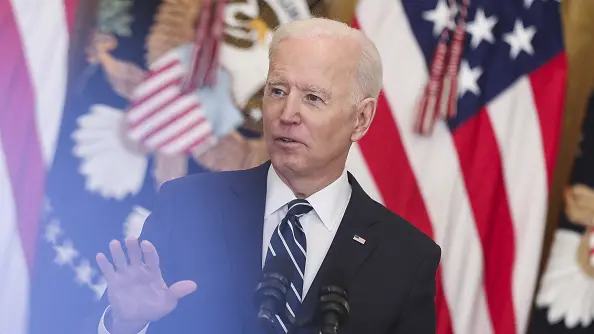
U.S. President Joe Biden speaks during a news conference in the East Room of the White House in Washington, D.C., U.S., March 25, 2021. /Getty
Editor's note:
Azhar Azam is a market business analyst who writes on geopolitical issues and regional conflicts. The article reflects the author's opinions and not necessarily the views of CGTN.
Once he took over as the U.S. President after four years of Donald Trump's discordant international approach, Joe Biden outlined his vision for the U.S. foreign policy todomesticandinternationalaudiences to declare "America is back, the transatlantic alliance is back.”
Many of the U.S. allies in Europe, which had adjusted or were trying to attune to a worldwithoutthe U.S. leadership or were charting their own independent way, wondered whether they should trust Biden'swordand the broken relationship could really be restored.
Following six months of Biden's young presidency, his assurance torebuild alliances and the U.S. moral standing and construct a wall against thefierceU.S. economic competitor, China, has come to a standstill. With Beijing's role in e-mobility easilydeepeningties between China and the European Union (EU), the Afghanistan catastrophe is urging some to press their governments to consider alternatives to the U.S.-led order since America willneverbe back.
The "position of strength" Biden sought – to compete by building back better, working with partners, renewing international institutions and reclaiminglostreliability – is being blown to smithereens in Afghanistan, given the "10 times more profound and structural" problems than they were in Saigon.
It's the U.S. arrogance, overseas interventions and apathy to international cooperation that has weakened the world's biggest economy's ability to strike back and stand even amongequals.
At the Group of Seven (G7) and NATO summits in June, Biden echoed "America is back." But his refrain was an attempt to get alargershare in the pie like Trump's "America First." Few European leaders would show their distrust in Biden's assertion publicly, yet privately they worry that his commitment to the NATO allies as well as to international cooperation and global governance is becoming a partisan issue in America, leaving them wondering if America was really back?

U.S. President Joe Biden and French President Emmanuel Macron meet during a bilateral meeting at the G7 summit in Carbis Bay, England, June 12, 2021. /VCG
Within a couple of months after the "successful" EU and G7 meetings, several European countriesfearthat Biden's unilateral decision to withdraw all troops from Afghanistan is the sequel of Trump's "America First" policy and that the U.S. president's promise to strengthen the transatlantic alliance lacks candor and genuineness.
Following the fall of Kabul, the U.S. President took 48 hours to talk to British Prime Minister Boris Johnson and another 24 hours to phone German Chancellor Angela Merkel. Biden's wariness to discuss an issue of mutual concern fueled apprehensions and resentments within the Europeans, who are now openly questioning the way the U.S. withdrew from a war launched in support of America.
The Afghanistan debacle shoves the Biden administration into a situation where he has to ensure that the country doesn't turn into a terrorist sanctuary and how to deal with the Taliban. But more disturbingly for the White House, Biden's "America is back" mantra is badly hit amid growing questions on the U.S. commitment andcompetence.
Dismayed former NATO Secretary General Lord George Robertson, who invoked Article V for the first time afterthe 9/11terrorist attacks on the U.S., is no more proud of an organization he once led. He feels the unique solidarity of the transatlantic alliance has been crushed by the "recklessness" and "unilateralism of the United States president" that will be difficult to recover, if it isn't lost completely.
At the recent G7 meet, the U.S. president refused to extend the August 31 deadline of troop withdrawal from Afghanistan, which was proposed by the key allies. His act topour into the wounds of the fractured relationship would dumbfound the wrathful U.S. allies and illuminate fissures with the alliance ahead of the majorconferences, the United Nations General Assembly and the G20 in Rome.
Biden's "America is back" delusion is further exacerbated by his plummeting domestic approval ratings, which have dropped to thelowestsince he assumed power not just over his ability to handle international crisis but also due to the rise of highly contagiousDeltavariant cases, stubbornly high rate of unvaccinated adults in some of the country's poorest states and weakjobmanagement, leading "the promise of April" become "the peril of August.”
Even as the U.S. House voted to push on mere a procedural motion to draft the $3.65 trillion jobs and infrastructure bill on August 24, the spending faces challenges from both House and Senate, with the Democrats having a hairlinemajorityin both chambers.
As some Democrat Senatecentristssay they cannot support the package and Republicans have blasted their rivals for pursuing their priorities in an effort to shrug off what's happening in Afghanistan, passage of the initiative is a tough gig to pull off for the Biden administration.
With Biden finding it difficult to handle domestic and international crises and distinguish himself from Trump on ditching the U.S. allies, this is highly unlikely he would be able to convince Europe and the world that "America is back." Rather, the European leaders aren't too far to openly equate the most-chanted slogan with his predecessor's "America First."
(If you want to contribute and have specific expertise, please contact us at [email protected].)
 简体中文
简体中文

